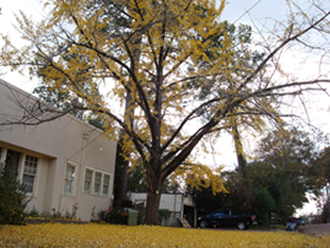 I’m still in Mississippi, returning to California on Wednesday morning. I’ll post in the next few days with an update on my stay in the south and details on upcoming plans for college and the springtime. In the meantime, I wanted to say thank you to my newest donors. The list on my home page is quickly growing!
I’m still in Mississippi, returning to California on Wednesday morning. I’ll post in the next few days with an update on my stay in the south and details on upcoming plans for college and the springtime. In the meantime, I wanted to say thank you to my newest donors. The list on my home page is quickly growing!
I also want to start writing brief posts in addition to the longer ones. Most bloggers base short entries around a single thought or photo, whereas I usually write more developed, magazine-style pieces. I hope that I’ll be able to share more of my experiences with you if I don’t need every post to have a crafted introduction, body, and conclusion like those five-paragraph essays we all know and love.
On my mind today, as autumn turns to winter, is Robert Frost’s poem “Nothing Gold Can Stay.” Darren has a Ginkgo Biloba tree outside his window, and he’d mentioned that it blooms fully for only about a week per year. With its long branches flush with clusters of bright yellow leaves, it stands out among all the trees on the block and makes passersby stop and marvel at the beauty of nature. I’ve been meaning to take a photo of it since I arrived two weeks ago, but the weather has been stormy and the sky never blue enough for my liking.
This morning, as Darren and I went out for a walk, he pointed out that most of the golden leaves had fallen into a thick carpet underneath the tree. Strong gusts of wind continued to pluck leaves from the branches and carry them away, suggesting that the tree would be bare in a week’s time. I felt a bit sad that I hadn’t captured the tree at its most beautiful, but I was reminded to appreciate the blessings in my life while I have them. I love how Frost expresses the impermanence of nature in this poem:
Nothing Gold Can Stay
By Robert Frost
Nature’s first green is gold,
Her hardest hue to hold.
Her early leaf’s a flower;
But only so an hour.
Then leaf subsides to leaf.
So Eden sank to grief,
So dawn goes down to day.
Nothing gold can stay.